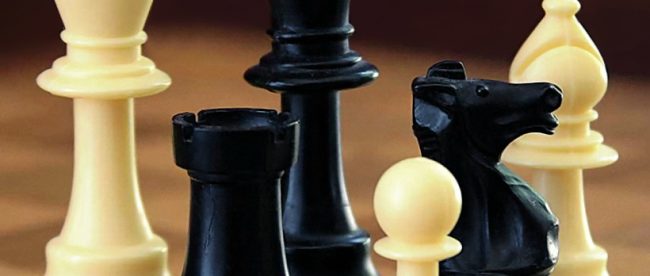How a Flush Beat a Checkmate

If you’re familiar with competitive chess, you know who Magnus Carlsen is. He’s the top-rated player in the world and, since the age of 13 (!), holds the rank of Grandmaster, the highest possible title one can have bestowed upon him in the chess world. To date, there have been just under 1,900 of them. He’s an exceptional chess player, to say the least.
And he probably doesn’t go to the bathroom more often than usual.
The criteria for earning Grandmaster rank are a bit detailed and not worth going into for our purposes today. The big hurdle, though, is your Elo rating. Beat another player and you gain points, lose a rated match and you lose points. How many points you win or lose is based mostly on the rating of your opponent relative to yours — if you pull off a big upset, you’ll get a lot of points, but if you lose to someone much more highly rated, you won’t lose that much. A new, unrated player starts with 1200 points; to become a Grandmaster, you need to reach a rating of 2500 points. That takes a long time and a lot of wins.
Once you’ve earned it, though, you keep it, even if your Elo rating falls below that 2500 point threshold — with rare exception. If need be, the International Chess Federation will punish a player by taking away that title. For example, in August of 2013, a Georgian chess player named Gaioz Nigalidze broke that 2500 barrier for the first time, and the next year, earned the title of Grandmaster. But if you look at his International Chess Federation page, you’ll notice that his rank is listed as “International Master,” which is a tier below Grandmaster. In December 2015, the Federation stripped him of his Grandmaster rank.
The problems began in April of that year, at the Dubai Open Chess Tournament. Nigalidze was facing off against Tigran Petrosian of Armenia, himself a Grandmaster as well. Per CNN, Petrosian “grew suspicious when Nigalidze kept bolting to the restroom” and, particularly, was taking this breaks during pivotal points during their match. Typically, peeing isn’t going to give one a competitive advantage in a chess match, but since May 11, 1997, there’s been reason to be skeptical of a bathroom-visiting opponent. On that day, then top-ranked chess player Garry Kasparov lost a chess match to Deep Blue, a computer program. Petrosian feared that Nigalidze was using his bathroom breaks as a way to get some secret, and illegal, computer assistance.
Officials searched Nigalidze and found nothing. But then, they checked the restroom. Per the Washington Post, inspectors “found an iPhone wrapped in toilet paper and hidden behind the toilet.” At first, ABC News reported, “Nigalidze denied the smartphone belonged to him, according to the statement, however officials said when they opened the phone it was logged into a social networking site under the grandmaster’s name.”
Nigalidze ultimately confessed and was barred from competitive chess for three years, becoming only the second person to lose the title of Grandmaster. While he hopefully learned from his mistake, at least one other person didn’t. In 2019, another now-former Grandmaster named Igors Rausis also had his title stripped; as the Guardian reported, Rausis was caught checking his phone while on the toilet. Rausis also retired from competitive chess as a result.
To date, no one else has flushed away their chess career. But if your opponent is using the facilities often, maybe they’re up to no good.
Bonus fact: At one point during the 2000 movie X-Men, Patrick Stewart (playing Professor Xavier) and Ian McKellan (playing Magneto) play a game of chess. If you watch what they’re doing, they’re probably playing at a very high level — but not because either of them was very good at the game. Rather, it was because they were rather clueless. According to an interview with Stewart, neither of them knew how to play. The producers didn’t want the actors to fake it; instead, they decided to bring in a Grandmaster to coach them.
From the Archives: Held in Check: What happens when a war back home disrupts a chess tournament on another continent.
